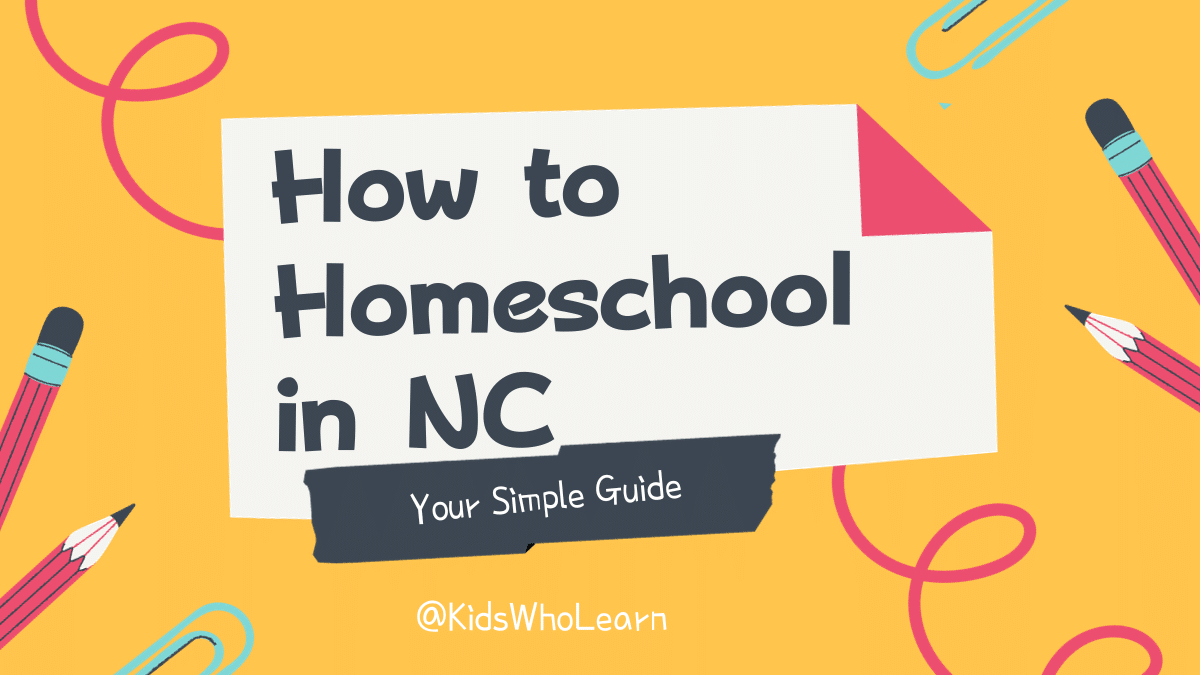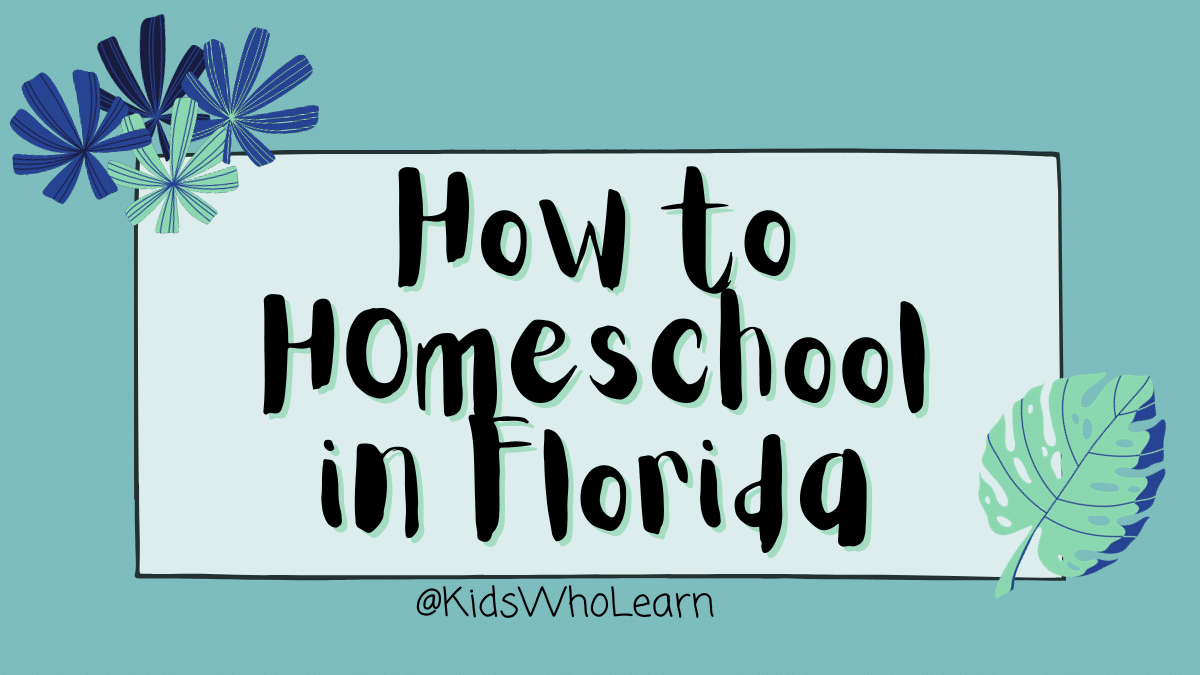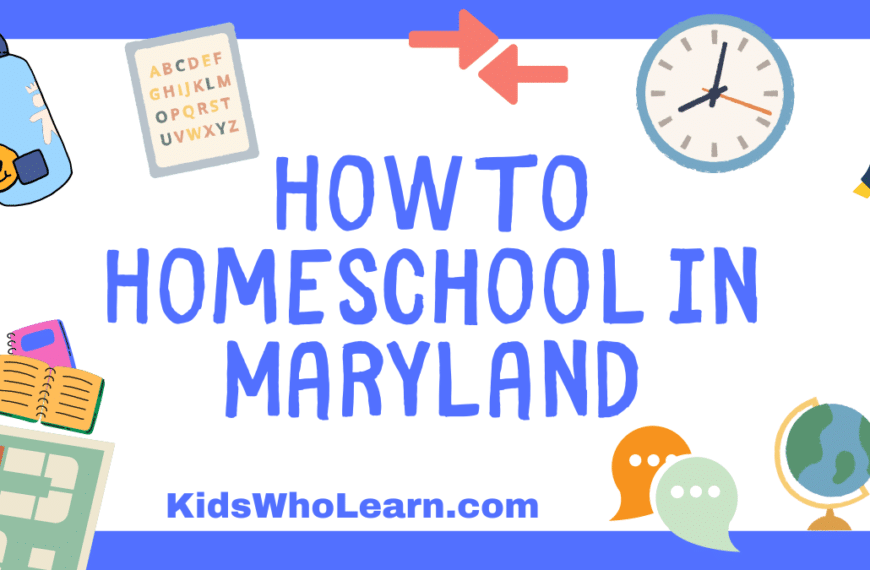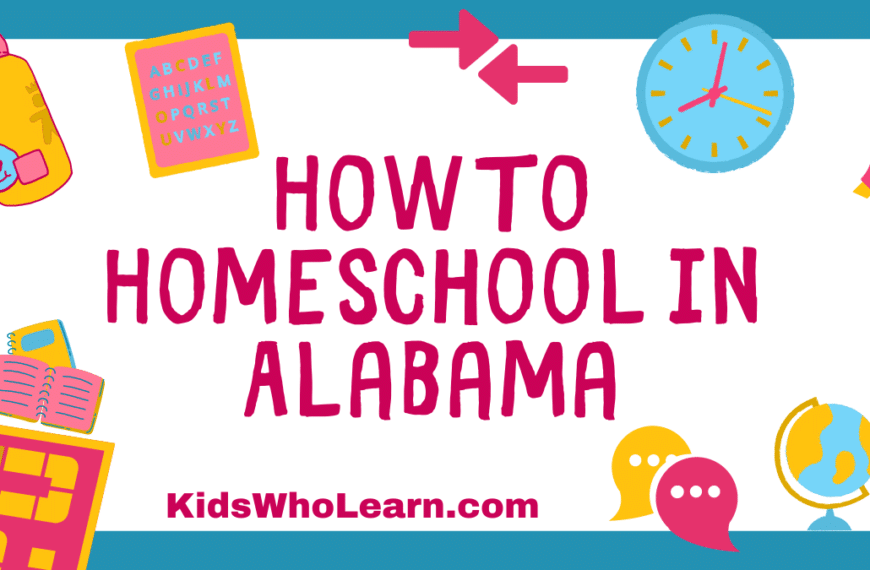Deciding to homeschool your children in North Carolina can be both exciting and intimidating. As a parent, you want to ensure you’re providing your child the best education possible, tailored to their unique learning style and needs. Homeschooling is an increasingly popular educational choice and understanding how to homeschool in NC is essential in making this journey a successful one for you and your children.
Before you dive into homeschooling, it is crucial to become familiar with the state laws and requirements surrounding homeschooling in North Carolina. This includes understanding the legal aspects, preparing for the process, choosing an appropriate curriculum, and registering your homeschool with the state. Being aware of these regulations ensures your homeschooling journey remains compliant, as well as providing a well-rounded and engaging educational experience for your children.
Key Takeaways
- Familiarize yourself with North Carolina’s homeschooling laws and requirements
- Choose a suitable curriculum and register your homeschool
- Engage with local homeschooling communities and regularly evaluate progress
Understanding North Carolina Homeschooling Laws
In North Carolina, homeschooling is a popular and legal alternative to attending public or private schools. As you embark on your homeschooling journey, it’s crucial to familiarize yourself with the state’s homeschooling laws to ensure you’re in compliance. This friendly guide will help you understand the foundational elements of homeschooling laws in North Carolina.
The first step is to notify the state of your intent to homeschool. You should file a Notice of Intent with the North Carolina Division of Non-Public Education (DNPE). This notice includes information about your homeschool, such as the name and address, the name of the homeschool administrator, and the effective date of homeschooling.
North Carolina requires that you have at least a high school diploma or equivalent to homeschool your children. You’re expected to maintain proper documentation, like a high school transcript or GED certificate, in case the DNPE requests to verify your qualification.
Next, it’s important to follow the attendance requirements. In North Carolina, homeschool students should attend school for at least nine calendar months each year, with a minimum of 180 instructional days. You’ll need to keep an attendance record throughout the school year for each student.
As a homeschooling parent, you are responsible for choosing the curriculum and educational materials for your students. Some subjects you must include are mathematics, science, social studies, language arts, and physical education. Make sure to maintain records of the curriculum used and any instructional materials or resources.
Annual testing is another requirement for North Carolina homeschoolers. You will need to administer a nationally standardized achievement test or another equivalent assessment annually. This test evaluates the student’s progress in subjects such as English, grammar, reading, spelling, and mathematics. Keeping a record of these test results is necessary, as the DNPE has the authority to inspect them.
By understanding and following these North Carolina homeschooling laws, your homeschooling experience can be smooth, enjoyable, and compliant.
Preparation Phase
Before diving into homeschooling in North Carolina, it’s important to know what you’re getting into. In this phase, you’ll research and prepare to ensure you’re ready for what lies ahead.
Step 1: Familiarize yourself with state laws about homeschooling in North Carolina. Understanding the legal aspects will help guide your decisions and ensure you’re compliant with state regulations. The North Carolina Division of Non-Public Education (DNPE) website is a great resource for this information.
Step 2: Determine your homeschooling approach and curriculum. Decide between a structured or more flexible approach, like classical, Montessori, or unschooling. Evaluate what aligns best with your family values, your child’s learning style, and your ability to provide the education.
Step 3: Research local homeschooling support groups, either online or in-person, to connect with other homeschooling families. These groups can provide invaluable encouragement, resources, and guidance in your homeschooling journey.
Step 4: Prepare the learning environment. Designate a dedicated space for homeschooling to help your child focus on their studies and maintain a sense of routine.
Remember, preparing for homeschooling in North Carolina is a crucial phase in ensuring a successful educational experience for your child. With proper research, planning, and support, you’ll be on your way to a happy and successful homeschool journey.
Choosing Your Curriculum
Age Considerations
When choosing a curriculum for homeschooling in North Carolina, it’s essential to consider the age of your child. Different age groups have varying needs, so select materials tailored to their learning stage. Younger children typically benefit from hands-on learning and play, while older students require more structured, in-depth subject coverage.
For preschoolers and kindergartners, focus on:
- Basic literacy: letter recognition, phonics, and pre-reading skills
- Math fundamentals: counting, sorting, and simple number operations
- Social development: cooperation, empathy, and basic manners
As your child enters elementary school, start introducing:
- Reading comprehension: understanding fiction and nonfiction texts
- Math concepts: addition, subtraction, multiplication, and division
- Science exploration: introduction to biology, physics, and chemistry
- Social studies: history, geography, and cultural studies
For middle and high school students, prepare them for higher education by:
- Advanced literacy: critical thinking, essay writing, and analysis
- Higher-level math: algebra, geometry, and trigonometry
- Advanced sciences: biology, chemistry, and physics courses
- Specialized social studies: government, world history, and economics
Subject Focus
Determine your subject focus based on your child’s interests and needs. In North Carolina, the Department of Administration recommends teaching the following subjects:
- Language arts (reading, writing, speaking, and listening)
- Mathematics
- Science
- Social studies (history, geography, economics, and government)
- Health and Physical Education
- Art, music, and foreign language
Consider using a mix of resource types for comprehensive coverage:
- Textbooks: provide structured, in-depth information
- Workbooks: offer practice exercises and self-assessments
- Online resources: access interactive lessons and supplemental materials
- Project-based learning: encourage creativity and exploration through hands-on activities
Finally, evaluate curriculum options based on your teaching style, your child’s learning style, and state requirements. Some popular homeschooling approaches include:
- Traditional: follows a typical school-like structure and textbook-based learning
- Montessori: focuses on child-led, hands-on learning in a prepared environment
- Classical: emphasizes literature, history, and critical thinking in a three-stage process (grammar, logic, rhetoric)
- Charlotte Mason: promotes living books, nature study, and habit formation for moral character development
Remember to stay flexible and adjust your curriculum as needed to best suit your child’s strengths and weaknesses. Keep your approach friendly and supportive, ensuring your child’s homeschooling experience is a positive one.
Registering Your Homeschool
Official Documentation
To start homeschooling in North Carolina, it’s important to register your homeschool with the North Carolina Division of Non-Public Education (DNPE). First, you need to ensure you meet the following requirements:
- The homeschool administrator has at least a high-school diploma or its equivalent.
- Your child is between the ages of 7 and 16.
Once you are ready, the registration process involves these steps:
- Visit the DNPE website and fill out the Notice of Intent to Operate a Home School form.
- Provide your homeschool’s name, address, and administrator’s information.
- Submit the form and wait for confirmation from DNPE.
You will receive an email containing a Home School ID number as proof of registration. Keep this information handy as it may be required when your child takes standardized tests or goes through college admissions.
Home School Naming
When registering your homeschool, you’ll need to give it a name. Keep in mind the following guidelines:
- Your homeschool’s name should not duplicate an existing one in the state’s database.
- The name should not include any words that might be considered offensive or inappropriate.
- The name should not imply your homeschool is an extension of the public school system.
Be creative when naming your homeschool, as it will be an important part of your child’s educational journey. Once the name is set, it will be reflected in all official records, so choose wisely!
Conducting Annual Testing
As you begin homeschooling in North Carolina, it’s important to become familiar with the annual testing requirements. By conducting yearly assessments, you can effectively track your child’s progress and make necessary adjustments to their learning plan.
In North Carolina, standardized testing is required for homeschoolers starting in third grade, and it should be carried out each year. The tests aim to measure your child’s aptitude in core subjects like English, reading, and math. It’s crucial to choose a test that is nationally standardized, as this ensures the results can be easily compared to the outcomes of other students.
Naturally, finding a suitable test can feel overwhelming. Some popular options among homeschooling families in NC include the Iowa Test of Basic Skills (ITBS), Stanford Achievement Test (SAT), and the California Achievement Test (CAT). These tests are readily available, and you can administer them at home, making it convenient for both you and your child.
Once you have selected a test, there are a few more steps to follow:
- Prepare: Help your child get ready for the test by reviewing the subject material and identifying any areas that need improvement.
- Schedule: Allocate a specific day for the testing, giving both you and your child plenty of time to prepare.
- Administer: As the parent, you can’t proctor the test yourself. Reach out to any qualified individual – like a qualified teacher, homeschool support group leader, or certified proctor – to oversee the testing process.
- Document: After the test is complete, keep the records of the results in your homeschool portfolio, as you may need to present them to the North Carolina Division of Non-Public Education (DNPE).
Remember, annual testing is about more than just fulfilling state requirements. It is an opportunity to evaluate your child’s academic progress and identify their strengths and weaknesses. By maintaining a friendly and supportive approach, you can help alleviate any stress associated with testing and encourage your child to perform their best.
Maintaining Proper Records
When homeschooling in North Carolina, it’s crucial to keep accurate and up-to-date records of your child’s educational progress. A well-maintained record system not only makes it easier to track your child’s growth but also helps ensure compliance with North Carolina’s homeschooling laws.
To begin with, you’ll want to keep a detailed attendance record for each homeschooling day. You can use a simple notebook, calendar, or spreadsheet for this. Make sure to mark down which days your child participated in educational activities and any days they were absent.
Another important element to document is your child’s progress in each subject. Keep a portfolio that includes samples of their work, tests, quizzes, and any projects they’ve completed. This will demonstrate their growth and achievements over time. You may also want to keep track of materials and resources used for each subject.
In North Carolina, standardized testing is required at least once per year for homeschoolers. Be sure to maintain a copy of your child’s test scores in your records as well. These test results are an essential part of showing your child’s progress and meeting state requirements.
Finally, keep track of any extra-curricular activities and individual achievements. This can include sports, clubs, volunteer work, and other activities that contribute to their well-rounded education.
Here’s a quick summary of what you need to maintain in your homeschool records:
- Attendance records
- Progress in each subject (portfolio, tests, quizzes, projects)
- Materials and resources used
- Standardized testing scores
- Extra-curricular activities and personal accomplishments
With these tips, you’ll be well on your way to maintaining proper records for your homeschool in North Carolina. Happy homeschooling!
Tips for Teaching Effectively
Welcome to the world of homeschooling! As you begin your journey, here are a few friendly tips to help you teach effectively in your North Carolina home classroom.
1. Create a structured environment: Designate a dedicated space for learning and ensure that your child has a comfortable and clutter-free area to focus on their studies. A routine or schedule can also be helpful to maintain consistency and provide purpose for each day.
2. Personalize your approach: Every child is unique, so cater their learning experience to their strengths and interests. You might consider hands-on activities for kinesthetic learners, visual aids for visual learners, or auditory exercises for auditory learners.
3. Balance one-on-one teaching and independent study: Homeschooling allows you to provide personalized attention to your child, but also give them the independence to explore new subjects on their own. Encourage research, reading, and problem-solving so that they develop critical thinking skills.
4. Collaborate with other homeschoolers: Connect with other families in your area who are homeschooling their children too. This way, you can share ideas, resources, and support. It can also help you plan group activities, field trips, and co-op classes.
5. Use a variety of resources: Take advantage of the numerous resources available, such as free online curriculum, lesson plans, or library resources. North Carolina has a wealth of educational opportunities, from local museums and historical sites to nature trails and outdoor experiences.
6. Plan and evaluate regularly: Set specific goals and objectives for your homeschool, then periodically evaluate your progress. Make adjustments to your teaching methods and curriculum as needed. Celebrate your child’s achievements and maintain an open dialogue about their progress.
Keep these tips in mind as you embark on your homeschooling adventure in North Carolina. Have fun learning together, and trust your instincts – you know your child best!
Engaging with Local Homeschooling Communities
Participate in homeschooling groups and co-ops: You can find many homeschooling groups and co-ops in North Carolina. Joining these groups will provide both you and your children the opportunity to share ideas, resources, and experiences with other homeschooling families. Look online for local Facebook groups or check out organizations like the North Carolinians for Home Education (NCHE) for support.
Attend homeschooling conferences and workshops: As a homeschooling parent in North Carolina, attending conferences and workshops allows you to learn more about homeschooling methods, resources, and curriculum. The NCHE holds an annual conference where you can meet other homeschoolers, attend informative sessions, and meet curriculum vendors. Be sure to stay up-to-date on upcoming events through local homeschooling organizations.
Plan social and educational activities with other homeschooling families: In order to create a well-rounded education for your children, consider organizing and participating in social and educational activities with other homeschooling families. These can include group field trips, park days, or clubs focused on various subjects and interests. This helps your child build friendships and engage with their peer group.
Utilize local community resources: Libraries, museums, and community centers often offer resources and programs that are useful to homeschooling families. Make sure you take advantage of these local offerings, including free library resources, museum programs, and various classes. This enriches your child’s education and helps you create a diverse learning environment.
Evaluating Progress and Adjusting Methods
As you homeschool in North Carolina, it’s important to regularly evaluate your child’s progress and adjust your teaching methods accordingly. Establishing a system for consistent assessments will help ensure that your child stays on track and continues to grow academically.
One way to evaluate progress is through regular testing. Standardized tests can be a helpful benchmark to understand how your child compares to their peers at the same grade level. In North Carolina, homeschool students are required to take an annual standardized test starting in grade 3. Ensure that you administer the appropriate tests and keep records of the results.
Another key component of evaluation is tracking your child’s daily work and assignments. By looking at their completed assignments, you can gauge their level of understanding and identify any areas where they may require additional support. Take note of patterns and trends, such as consistently struggling with a specific subject or type of assignment.
To address identified weaknesses, try implementing different teaching methods and materials:
- Experiment with various instructional approaches, such as hands-on activities, group discussions, and multimedia materials. Different children learn in different ways, so don’t hesitate to try new strategies.
- Adapt the pacing of your lessons to match your child’s needs. Slow down for challenging concepts or move more quickly through material that your child has already mastered.
- Seek external resources when needed. Local homeschool groups, online forums, or experienced homeschooling parents can provide advice and resources tailored to your specific situation.
Remember, frequent evaluation and adjustment of your teaching methods will help your child thrive in their homeschool environment. Be open to change and communicate with your child to ensure their educational journey is both enjoyable and successful.
Concluding Homeschooling and Transitioning
As you wrap up your homeschooling journey in North Carolina, it’s important to consider the next steps for your child. Remember to keep a friendly and open mindset as you work towards transitioning to the next phase.
First, make sure you have all the necessary documentation and records, such as test scores, attendance sheets, and curriculum outlines. This will help when registering your child for a new school or applying for college. Organize them for easy access and future reference.
Next, talk with your child about their goals and aspirations. Your homeschooling experience provided a unique foundation to build upon, so explore their interests and possible paths together. Make a list of colleges, trade schools, or job opportunities that align with their goals.
Lastly, help your child develop social skills to foster new relationships. Encourage them to join clubs, sports teams, or art classes in your community, providing a space to interact with peers who share common interests.
By keeping these tips in mind, your child will be well-prepared for their transition from homeschooling in North Carolina to the next exciting chapter in their lives.
Frequently Asked Questions
What are the legal requirements to homeschool in North Carolina?
To homeschool in North Carolina, you must follow these legal requirements:
- File a Notice of Intent to Operate a Home School with the North Carolina Division of Non-Public Education (DNPE).
- Must have at least a high school diploma or its equivalent.
- Operate your homeschool on a regular schedule, a minimum of 9 months per year.
- Teach the required subjects, which include language arts, math, science, and social studies.
- Administer an annual nationally standardized test to assess your child’s academic progress.
What is the cost of homeschooling in NC?
The cost of homeschooling in North Carolina varies depending on your choice of curriculum and any additional resources you purchase. You can expect to spend anywhere from $400 to $1,500 or more per year per child. Keep in mind that you’ll also be responsible for the cost of books, supplies, educational trips, and extracurricular activities.
How can I find a suitable curriculum for homeschooling in NC?
To find a suitable curriculum for homeschooling in North Carolina, you can:
- Research online for homeschool curriculum providers and read reviews from fellow homeschoolers.
- Attend local homeschool conventions and curriculum fairs to explore different options.
- Connect with local homeschooling groups or online forums to seek recommendations from experienced homeschoolers.
- Consider your child’s learning style, interests, and your educational philosophy while choosing a curriculum.
What are the graduation requirements for homeschoolers in NC?
In North Carolina, homeschool parents determine the graduation requirements for their students. You will need to provide a high school transcript that includes credits earned, coursework, and grades. It’s essential to research college admission requirements and ensure your child meets those criteria.
How do I maintain an attendance record for my homeschool in NC?
You must keep an attendance record for your homeschool. Here are some tips to maintain attendance in NC:
- Create a simple spreadsheet or use a planner to track daily attendance.
- Keep a digital or physical copy of the attendance record.
- Record any field trips or educational outings as part of your attendance record.
- Follow the state requirement of operating a minimum of 9 months per year.
What is the process for homeschool testing in North Carolina?
Homeschool testing in North Carolina requires administering an annual nationally standardized test to your child. Here are the steps to follow:
- Choose a nationally standardized test that fits your child’s needs and meets the state requirement.
- Schedule and administer the test, which can be taken at home or a testing center.
- Keep a copy of the test results in your homeschool records for future reference.







